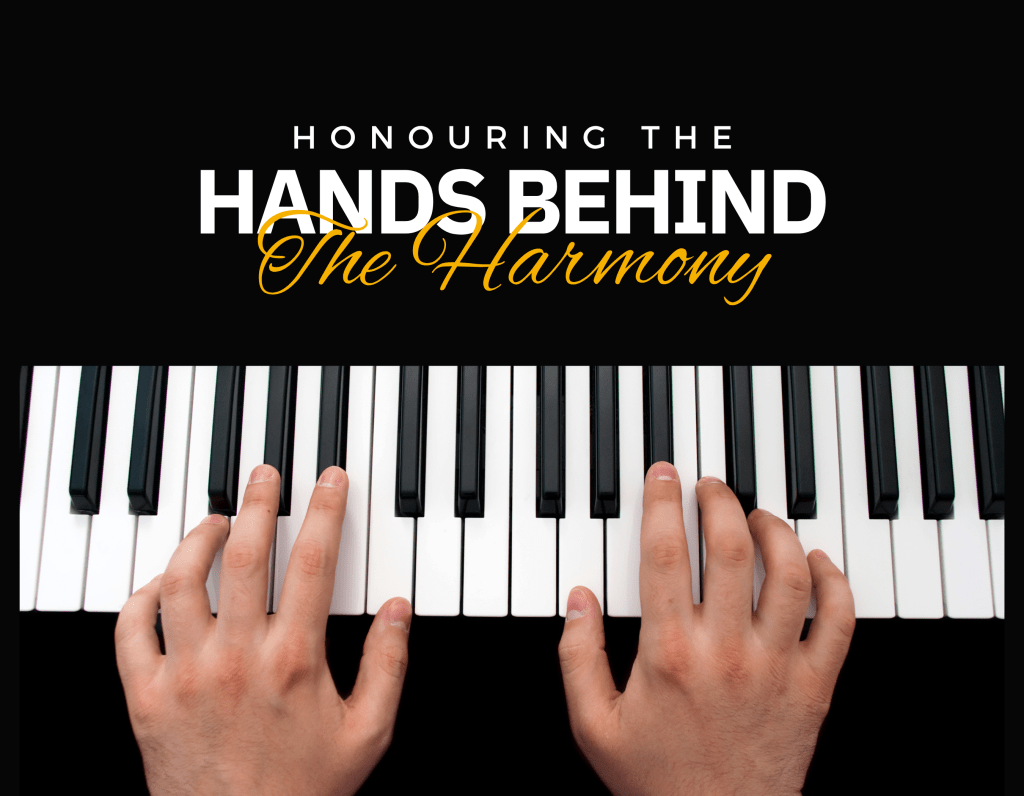I still remember the torturous journey of learning to play the keyboard. No teacher, no formal lessons—just trial, error, and a deep love for the keys. My path as a keyboardist has been one of pain and perseverance. I first taught myself to read music using old Baptist church hymnals that included both lyrics and musical notation. Back then, those books were rare. I had to save up and travel long distances just to find secondhand copies being resold.
I started learning well into my twenties. After saving enough to buy my first keyboard, I spent countless hours practising, often alone. The years that followed were full of frustration, setbacks, moments of giving up—and starting all over again. All while trying to juggle work commitments and daily responsibilities.
As a child, I had always dreamed of playing the piano, but never had the opportunity to learn. That passion remained buried deep within me, waiting patiently for the right time. And when that moment finally came, it was anything but easy. There were tears—times when my hands simply couldn’t do what my heart so deeply longed for. And life didn’t pause either—work, family, studies, and lack of resources made the journey feel almost impossible.
Today, I’m still far from where I want to be—but I’m grateful for how far I’ve come.
To anyone currently on this journey, longing to play: don’t give up. It’s not too late to start, no matter your age or circumstances. Find a good resource to guide you. Out of all the materials and platforms I’ve explored, the one I recommend above all else—especially for those who want to play gospel keyboard—is Piano Lessons with Warren.
In just a few months of using that platform consistently, I improved more than I had in the previous ten years combined. I can’t recommend it enough.
The Cost of Craftsmanship
Becoming a competent musician doesn’t happen overnight. It takes time, discipline, and often financial investment. From purchasing gear and software to spending long nights refining chord progressions, music is both a calling and a craft. And in almost every context outside of the church—studios, weddings, schools, live events—musicians are respected and compensated.
So why does this conversation become uncomfortable when the stage is in a church?
Serving in church is a blessing—without a doubt. But there’s a widespread assumption that if you truly love God, you’ll offer your musical gifts for free. And while many of us do so joyfully, this should remain a personal conviction, not an unspoken expectation. Service should come from a willing heart—not from pressure, guilt, or fear of judgement. When it doesn’t, it stops being service and becomes silent sacrifice.
What Does Scripture Say?
Paul offers wisdom on this very matter:
“For the Scripture says, ‘You shall not muzzle an ox while it treads out the grain,’ and, ‘The labourer is worthy of his wages.’”
– 1 Timothy 5:18 (NKJV)
The principle is clear: those who labour deserve support. And this includes not just pastors or preachers, but everyone who serves in the house of God.
Paul also wrote:
“Do you not know that those who minister the holy things eat of the things of the temple, and those who serve at the altar partake of the offerings of the altar? Even so the Lord has commanded that those who preach the gospel should live from the gospel.”
– 1 Corinthians 9:13–14 (NKJV)
These verses show that spiritual service and practical support can go hand in hand. Receiving compensation for ministry work is not unspiritual—it’s biblical.
Responding to Common Objections
“Playing in church is service to God and should be free.”
This may sound noble, but it can be unfair. Many musicians arrive early, attend rehearsals midweek, and serve during multiple services. These are hours of work—often alongside full-time jobs or studies. Would we expect the same of sound engineers or media technicians without any offer of help or appreciation?
“God will reward you.”
Yes, He will. But divine reward should never be used to excuse earthly responsibility. Scripture teaches both. Offering practical support is one way the church participates in God’s blessing.
“Only pastors deserve to be paid.”
This mindset overlooks the many roles that make ministry possible. Worship isn’t background noise—it’s a vital part of church life. Musicians help create spaces where people connect with God. That’s worth recognising, spiritually and practically.
“Churches don’t have enough funds.”
This can be true in some cases. But even when finances are limited, transparency and appreciation go a long way. A church that cannot pay can still offer support—transport assistance, a meal, or a simple public thank-you. Honour doesn’t have to be expensive.
“Paying musicians makes them worldly.”
This assumption is problematic. It suggests that compensation undermines the heart of service. But being paid doesn’t dilute your calling—it enables it. It frees the musician from unnecessary financial stress so they can focus more fully on ministry. There’s nothing worldly about valuing someone’s time and effort.
Let’s Honour Every Gift
At the heart of this conversation is one word: respect. Musicians, like all workers, deserve to be seen, appreciated, and supported. Not every church can afford to pay. Not every musician expects to be paid. But the conversation should be open, honest, and led by compassion.
Let us be churches that honour every act of service, and every gift that makes worship possible. Music is more than sound—it is ministry. And those who pour themselves into it deserve to be treated with the same dignity we extend to any other servant in God’s house.
